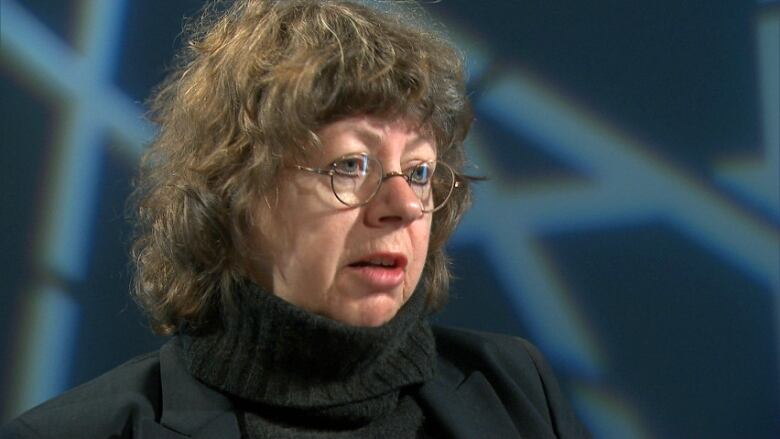Pig Girl takes on issue of missing and murdered aboriginal women
Montreal production brings story of missing and murdered women to the stage

A new Montreal production aims to serve as a wake-up call about violence against women and particularly to violence against aboriginal women.
Colleen Murphy, a Governor General's Award-winning playwright, has penned a four-character play called Pig Girl to explore what she calls "all aspects of the same horror."
Each of the fictionalized characters — The Dying Woman, The Killer, The Cop and The Sister — offer up their own experience of the same events in the context of the Robert Picton case.
Picton was a pig farmer in B.C. who was convicted in 2007 of second-degree murder in the deaths of six women.
Imago Theatre, a company specializing in telling women's stories, is staging the play in Montreal with aboriginal actor, Reneltta Arluk in the role of The Dying Woman.
I sat down with Murphy to discuss her play and her intention in writing it.

What inspired this play?
I wanted to think about and imagine very much a woman caught up in this situation. I wanted to imagine what she would do and how she would fight against the terribleness and the hopelessness of the situation, and how she would fight with courage — how she was heroic and how she was not just a victim.
She was a heroine and she was saying, "No, I refuse this." That's how it began in my guts.
Why the title Pig Girl?
That's how it came to me. It's an ironic title. I don't like irony but it is an ironic title.
These women were treated as animals so the title, even though it's not pretty and kind of provocative, it is ironic.
Why the choice of four characters to tell the story?
They are each human beings and there is The Dying Woman, who will die. She knows that and she has a full life and many dreams. There is The Killer and there is no question about it, guys like this don't just do these things out of the sky. Things happen to them. They grow up in the same society we all do, so he is a human being, he does terrible, terrible things.
The Sister is a human being who will forever til she dies look for her sister. This is a form of death.
The Cop, you know, is an asshole but a human being, right. He comes to understand that he was blind and what he did cost lives but he is still a human being. So I tried to put four human beings together in two different time frames and to imagine what this feels like, and to offer that to the audience. We can all read about it but, how it feels, that was very important to me.
What was your intention in writing the play?
To wake people up. And I would say white people. I think indigenous people know what's going on. They've known what's going on forever. As a writer I get very, very involved in a character.
I don't really think about messaging. But when you put your pen down, when you've finished it and you think, 'Oh my God, oh my God,' and yeah it's a kind of a wake-up call, and I think theatre is a great place to do that because it's live. People are breathing on the stage you can't just turn it off and go get a bag of chips.
I also spoke to Reneltta Arluk, an indigenous actor who plays The Dying Woman. Here's an excerpt of that conversation.
Why did you want this role?
I think she's incredible, I think she's resilient. I think she's smart. I always say when you look at the headlines, about our missing and murdered, you often read sex worker, indigenous, homeless, addicted and then you never look beyond that headline of who that person was, and this is an incredible opportunity where you see her and you can judge her. But then you hear her story through The Sister and through herself and her experiences and you peel off the layers so that person is not just a statistic anymore. That person is a person who lived a great life and becomes more than a victim and that is why I'm thankful to be part of this process.
Listen to Colleen Murphy, Reneltta Arluk and director Micheline Chevrier in conversation on Cinq à six, Saturday, Jan. 30 at 5 p.m. ET on CBC Radio One.
Pig Girl plays at Centaur Theatre January 30-31 & February 3-6, 2016.

